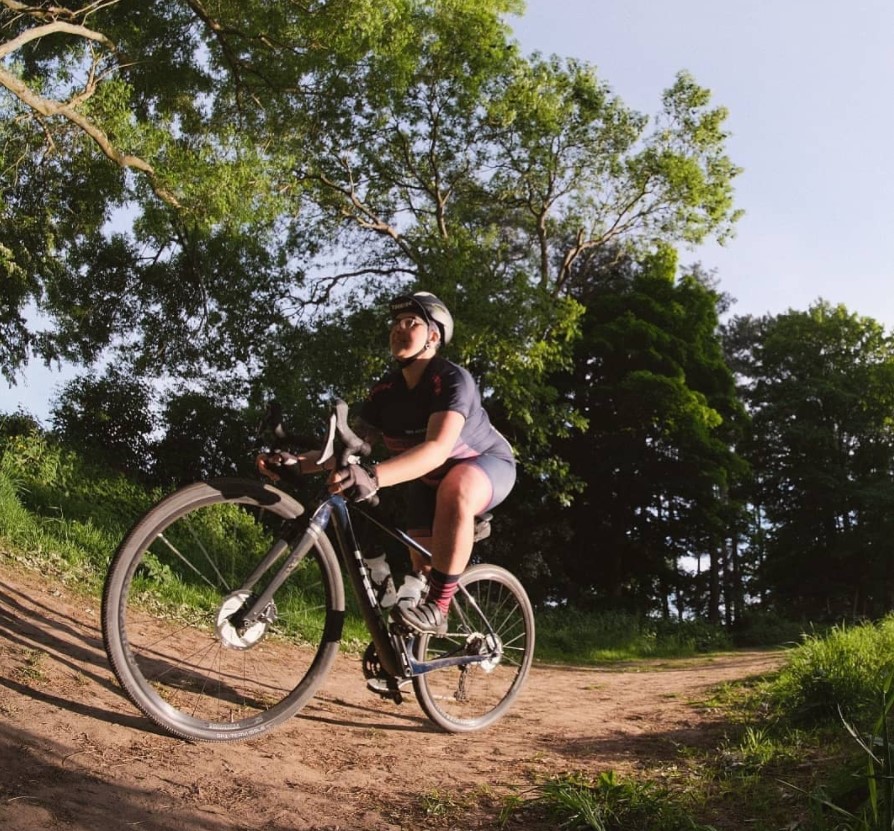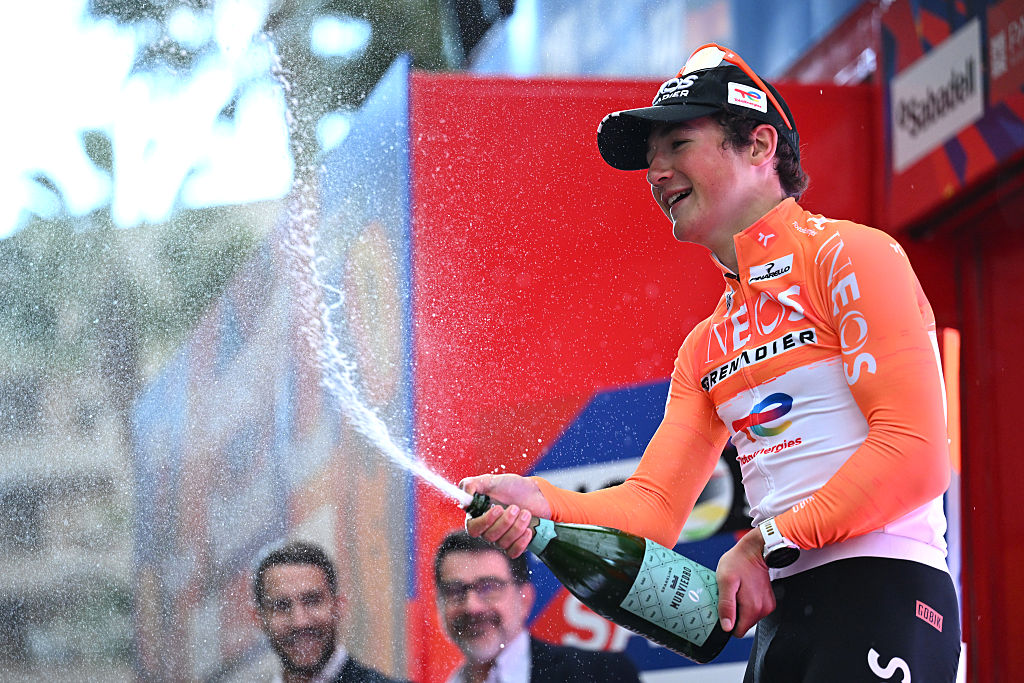‘I love racing, but if I do only that, then it starts feeling hollow’: In conversation with Lael Wilcox
The ultra-distance extraordinaire talks us through introducing women and girls to bikepacking and racing
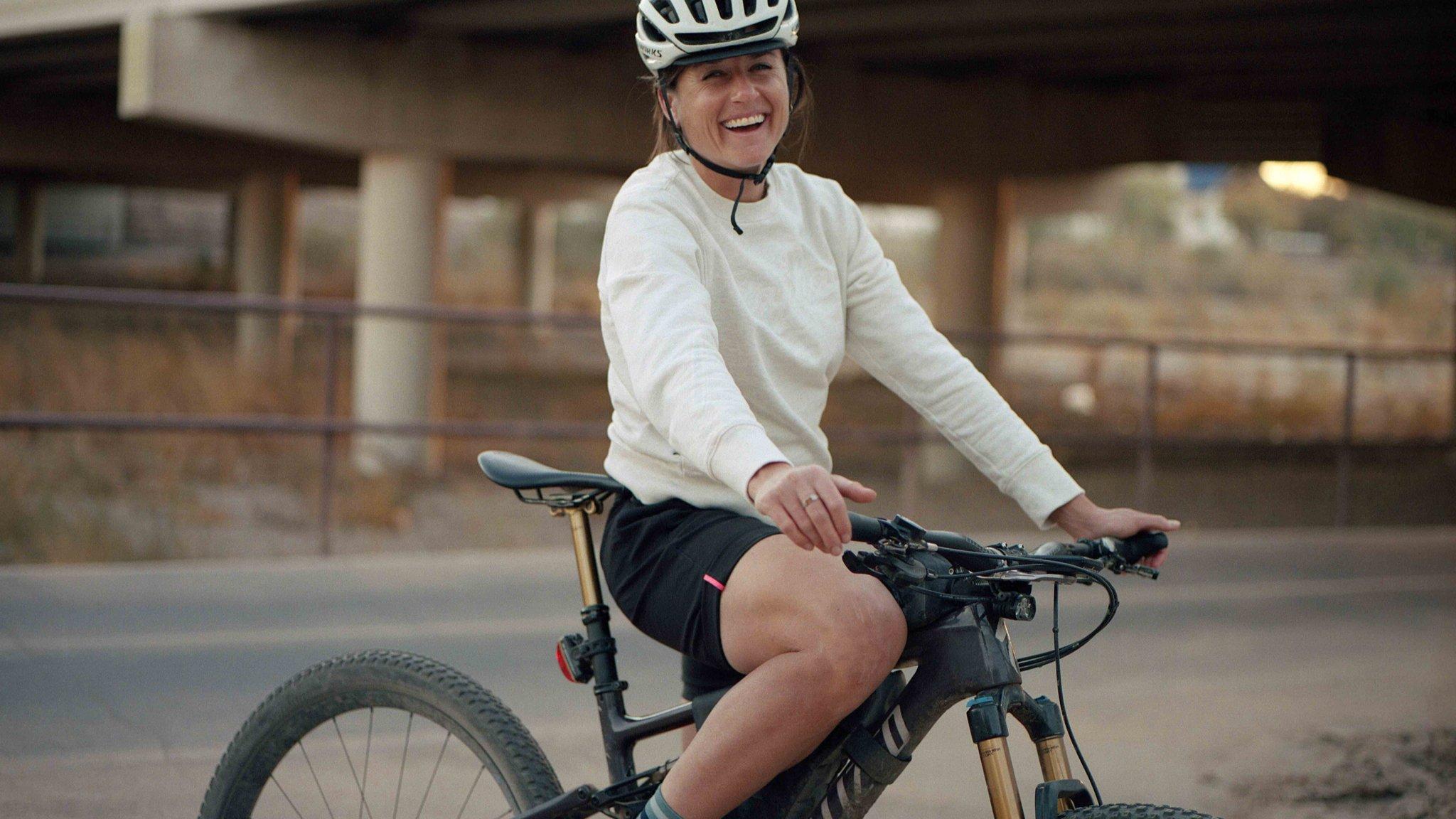
The latest race content, interviews, features, reviews and expert buying guides, direct to your inbox!
You are now subscribed
Your newsletter sign-up was successful
Back in March, Cyclingnews Reviews Writer Mildred Locke had a sit down with ultra endurance extraordinaire Lael Wilcox to chat about how she encourages more women and girls to take up the sport.
At the time of the interview, Lael had just moved to Arizona and was getting ready to launch her Tucson GRIT (Girls Riding Into Tomorrow) programme. Since then the programme has launched, she’s delivered a TEDx talk called ‘Going the distance’, and is soon to be leading her inaugural group tour of the Montañas Vacias.
You can watch the full interview at the bottom of this excerpt.
In conversation with Lael Wilcox
ML: Can you tell me about Tucson GRIT?
LW: I ran Anchorage GRIT in Alaska for three years, and now I'm starting one in Tucson. This year, we'll work with 15 girls, mostly low-income students. We ride together for six weeks to build up to the final campout, and we'll go out to Catalina State Park and camp overnight, probably without tents so they can look at the stars. The desert’s so incredible for that, I'm excited to get it going.
I actually came up with the idea with a good friend of mine, Cait Rodriguez, while we were bike touring together in Mexico. We thought, "How cool would it be to do a girls’ programme?", and then dialled in from what we wish we had done when we were young, because I didn't start riding until I was 20.
We knew we were going to ride from Anchorage, the biggest city in Alaska out to the wilderness, and I knew this really cool Forest Service cabin that backs into a glacier down a 12-mile mountain bike path. I thought, let's end there, and then worked backwards.
The latest race content, interviews, features, reviews and expert buying guides, direct to your inbox!
So then it was a question of: how do we build up to do that with 12-year old girls who’ve never ridden more than 10k, and they have to ride 100 by the end? But the amazing thing is kids can do so much, so it really doesn't take that long. It just takes consistent riding and building confidence. Taking on a challenge for the first time is so cool to see. In the beginning, some of them really struggled to ride two miles, and then in the end, they do this huge ride, and they're just so blown away by their own achievement, and how much fun they had.
So that's what really keeps me going, doing it year after year.
ML: Do you think things are changing for women and girls in cycling?
LW: I think it is changing, I think the sport of bikepacking is growing in so much more of a heartfelt way, where it's not just showing up to the start line on your own and being self-supported, but also more women creating events or opportunities to encourage more women to just participate in any way, for it to be social, for it to be fun, for it to not always be a competition. And that's even better.
That's also how I got into cycling, too — bike touring — and you do feel lonely out there, if you're doing it alone, and you don't have a community. Now, I feel like there's just so much more sharing and there are communities, invitations, you can go on rides, you can meet people, you come up with new ideas, you create more than just your own trip. And that makes it so much more inspiring for me.
I love racing, but if I do only that, then it starts feeling hollow, the experience isn't rich enough, because you're not sharing it with others, you don't see the spark, and other people where they’re excited to do their own thing. I feel like that's so much better, because for me, it's so cool to think about other women riding and enjoying this, and because it's also such a great outlet for stress, and any negative emotions. You come back to a positive feeling when you're out there, even if it's hard. I'm seeing that grow more and I'm seeing more people open up because of bikepacking and where it takes them. So I really love that.
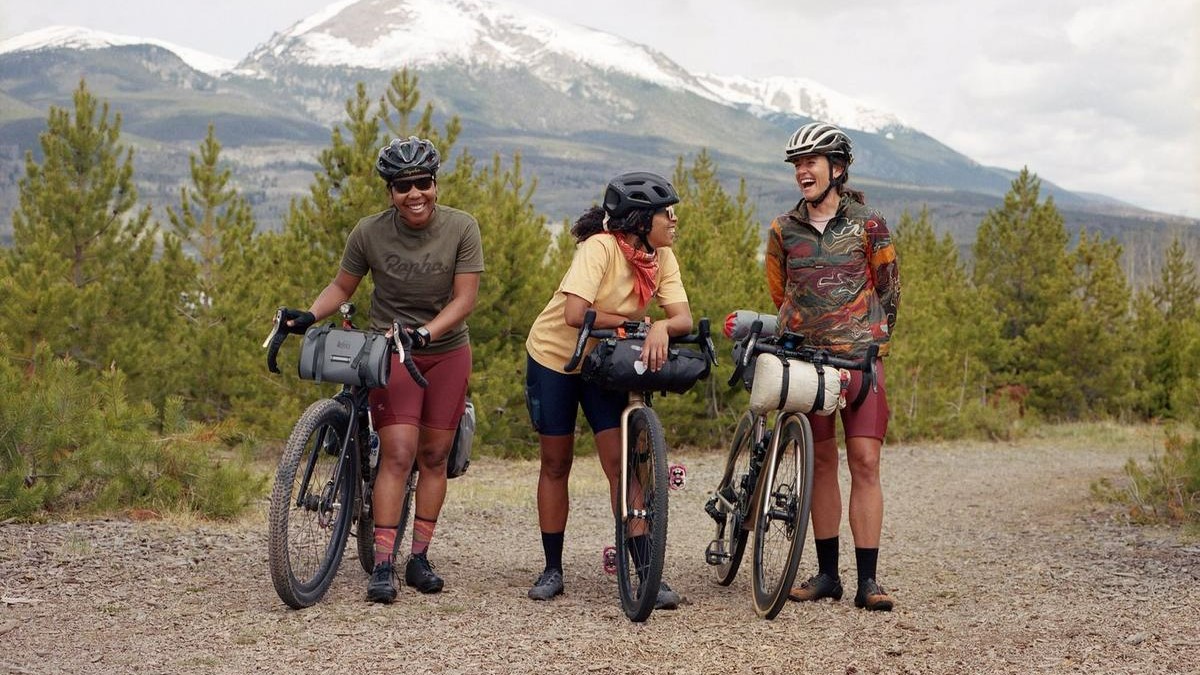
ML: Yeah, that's amazing. You're leading two women's specific bikepacking events this year, right?
LW: Yeah, I'm super excited about both of those. So the first one is on the Montañas Vacías route in Spain, the first week of May. When the registration went live, 50 spots filled up in 30 seconds. I was like, ‘holy cow!’. I want everybody to be able to ride it, but I'm coordinating these with Gaby [Thompson] from Komoot, and she said it's really important for us to keep it an intimate space where it's not a huge community, where we actually know all of the riders, and nobody falls through the cracks. We want everybody to feel like they're there for a reason.
It's a 680km loop near Valencia, and very mountainous, with mixed gravel and pavement, through small villages. I guess this is the least populated region of Spain, and it looks really beautiful. I've never ridden it, so I’m super excited for that.
The second we'll do is another women's Torino-Nice Rally in September, like we did last year, and that's one of the most beautiful places I’ve ever ridden without a doubt.
ML: What are the common hurdles that women talk about that stop them from getting to the start line in the first place?
LW: After the Torino-Nice Rally last fall, where we had 26 riders, many of these women actually shared that they were so intimidated, they almost didn't show up. I was so surprised, because these were the ones who actually came, and there were so many very experienced riders.
They didn't think they'd be able to keep up, they're not good enough mechanics, coming alone was a scary thing. There were some body image issues, where they felt like there wasn't enough representation of people of different sizes out there. I feel like these are all things that come up that make women feel alone, like they don't belong to the group, and that's exactly the opposite of what we're going for.
These rides are supposed to be for community — it's not a race. You can make alterations to the route. We start together, you have your own ride, but you're mixing it up with other women, and then you try to get to the finishers’ party about a week later. Anyway you can get there, you can take a train part of the way, you can ride a more direct route, if you have something that takes time for you. This should be a very welcoming community.
So to hear that people were intimidated or scared about these things, we took that really seriously and before this Spanish ride, we had a panel talk to address some of these things.
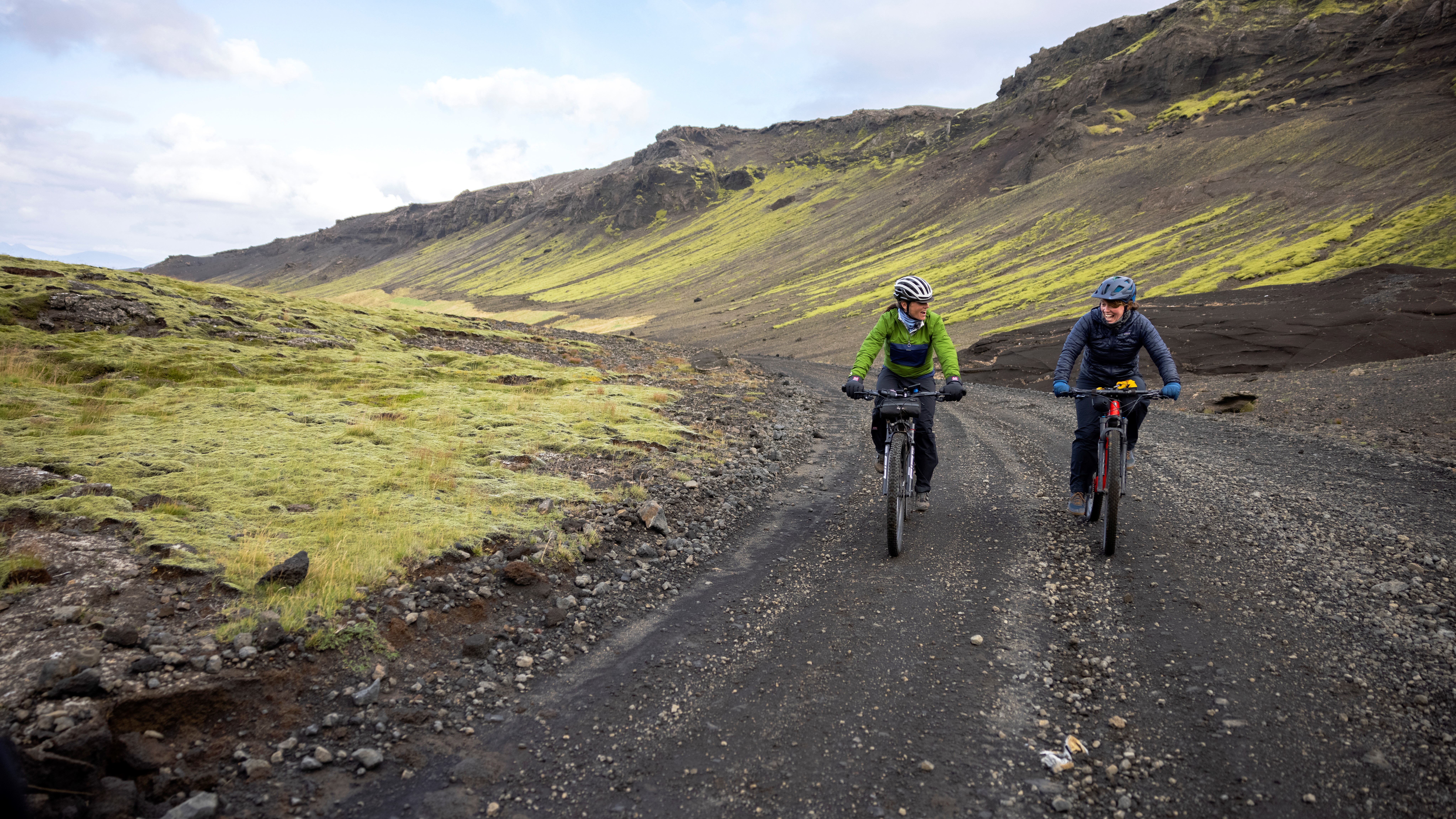
ML: If someone says to you, ‘I love the idea of the Torino-Nice rally, but I'm nervous’, what's your advice? What do you say to someone who's just still on the fence?
LW: My advice is just very practical. Take this distance of the route — 680km — you have eight days to complete it, that means you have to ride 85km a day. Daylight’s from 7am until 9pm, so you have 14 hours of daylight. You have to ride 85km in 14 hours, so your average pace does not have to be fast. You just have to stay on the bike and get the miles done. There's no other way.
Ride one [kilometre] at a time, you just have to keep going, and it doesn't really matter how fast you go, as long as you continue. Along the way, maybe not everything's gonna go right. There could be bad weather, you could run out of food, but figuring out solutions to those problems is part of the adventure. It doesn't have to be scary, you just deal with what comes up.
In a situation where you're in a rally with other women, you have support around you, so if something goes wrong, you have somebody to talk to about it, you can solve these problems together, you can come up with solutions together, and that's pretty cool. I think that's why it's important that it's all women, because what woman hasn't been in a situation where you get a flat and a guy pulls the wheel out of your hand? That's just how it goes. But a woman isn't going to do that to you, she's going to be like, ‘hey, do you need help?’ or, ‘I’ve got this tool’, or, ‘I don't know how to do that. Let's try to figure it out together’. It's just different, and that's empowering.
I see that with the GRIT girls too. All the mentors are women, so if something goes wrong, we're like, ‘okay, does anybody know how to fix this?’ and if they don't, we're like, ‘well, what's the next best thing?’. Otherwise, we'll never gain confidence or learn new things if somebody is just stepping in all the time.
ML: Do you have any advice for women who are getting started out with long distance racing?
LW: Try it first in a non-competitive setting where the stakes are low, ride through the night, and try that out in advance and see how it was. Because also you learn things like: do you have the right setup? Do you like the equipment you have? Do you have lights that work, clothing that's comfortable, the right layers? You figure out what you're going to eat along the way.
I feel like some of these endurance races are basically just like bikepacking, but you just fit three or four days into one. So you need the same skills, like navigation, how to pack what you need handy, how to find food and water — life skills on the bike. If you're efficient with all those, you'll be a good racer, basically, or you'll be ahead of everybody else that just showed up and thought it was just about riding. Because it's not really, there are so many other elements that go into it, where you have to take care of all your physical needs, and then also try to ride for 20 hours a day. So I feel like if you can figure out those little pieces that work for you.
That's how I did it, and then I transitioned that into a race setting. It becomes a very funny game of multitasking. Like, ‘okay I'm going to stop, and then I'm going to pee, and then I'm going to change my shirt, and then I'm going to grab a sandwich, and I'm going to put it in this bag, and then I'm going to put on my sunscreen, and then I'm going to get back on my bike’.
The fewer times that you stop, the more efficient you are, and the less time you waste. I get obsessive about this, but it really does make a difference!
This is an extract of the full interview, which you can watch below.
Mildred joined as Reviews Writer for Cyclingnews and BikePerfect in December 2020. She loves all forms of cycling from long-distance audax to daily errand-running by bike, and does almost everything on two wheels, including moving house, and started out her cycling career working in a bike shop. For the past five years she's volunteered at The Bristol Bike Project as a mechanic and session coordinator, and now sits on its board of directors.
Since then she's gone on to write for a multitude of cycling publications, including Bikeradar, Cycling Plus, Singletrack, Red Bull, Cycling UK and Total Women's Cycling. She's dedicated to providing more coverage of women's specific cycling tech, elevating under-represented voices in the sport, and making cycling more accessible overall.
Height: 156cm (5'2")
Weight: 75kg
Rides: Stayer Groadinger UG, Triban RC520 Women's Disc, Genesis Flyer, Marin Larkspur, Cotic BFe 26, Clandestine custom bike
